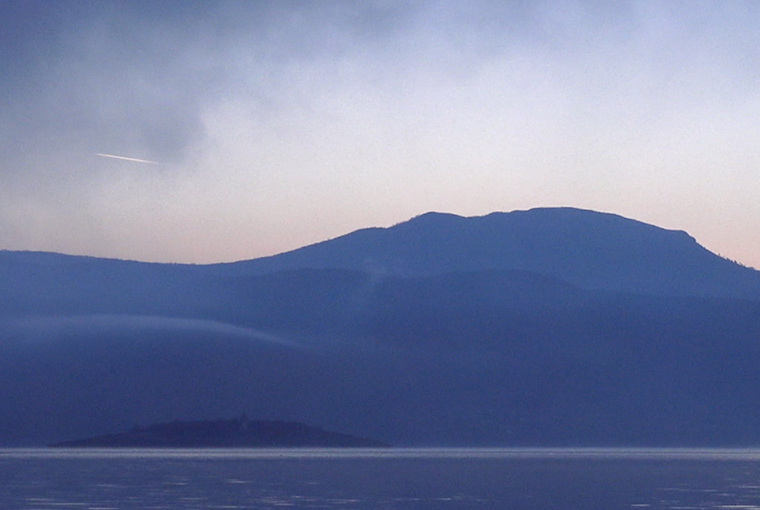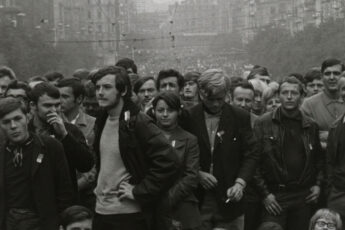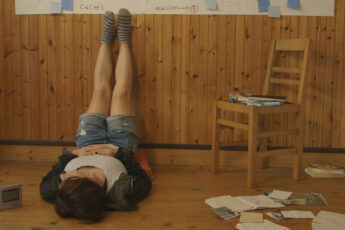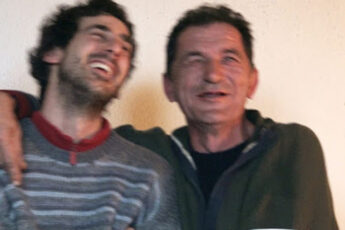
While the ghosts of Europe’s past may not haunt the corridors of our deserted offices just yet, from picking up recent newspaper articles, one may get a different impression. Shortly before the COVID-19 crisis, the coal curtain was declared the new iron curtain, with heat maps of coal production and air pollution flaring up in post-Soviet states. This month, Alexander Casella writing for Asia Times declared the migration crisis resulting from US military interventions to have erected a new iron curtain. The list goes on. From public attitudes toward religion, minorities and social issues such as gay marriage and legal abortion over the strongmen era and rise of populism to the geopolitical conflict over Belarus, the East-West divide is ever present. The spook is shared by the press in Eastern Europe. Already last year, Russia’s state-owned radio broadcast service Sputnik declared the coronavirus to have dropped a new iron curtain in the form of travel restrictions between Eastern and Western Europe. The latest redux of Cold-War division was reported by the Guardian. Citing a study by the V-Dem Institute which tracks democratic violations during the pandemic, the British newspaper’s headline read “Eastern European countries adopting authoritarian measures in face of Covid”. There seems to be no doubt about it, the iron curtain is back. With a vengeance.
It is, of course, possible to argue that, whatever discontent, illiberalism and ecological destruction is afflicting the former Eastern bloc may also be observed in the West, that the great regression has hit Eastern and Western countries alike and that “modern angst” transcends the territorial configuration of the Schengen area. Indeed, the democracy status provided by Freedom House as well as the democracy index compiled by the Economist Intelligence Unit (EIU) do not paint the same neo-Yaltan world order reported by the Guardian. Notably, Hungary is here identified as the exception when it comes to authoritarian standards, not the rule, and France, Belgium, Portugal, and Italy are classified as flawed democracies on par with the Baltic states. A map of CO2 emissions per capita shows that the “iron curtain” is fractured, at best. How useful, then, is it to uphold such dichotomies?
If the backsliding of democracy and return of social malaise is a global, not a local trend, observations on the “new iron curtain” appear to follow a peculiar form of geopolitical distinction, in the sociological sense of strategically outsourcing undesired values onto others for the sake of maintaining a superior social status or power. In other words, the recent resurrections of the iron curtain are rhetorical buck passings more than they provide insights into observable differences between East and West. This suspicion is confirmed by the bias of relevant reports, with Western newspapers somehow only reporting about doomsday statistics in the East and vice versa. Perhaps more interesting for the readers of this journal would be the new iron curtain of Netflix subscriptions, with the former Eastern bloc markedly recording fewer subscriptions. But then again, there is the new iron curtain of internet speed, which surely explains the fewer subscriptions… (How any of this may help us understand why a Netflix subscriber, anywhere, would spend an average 3.2 hours per day on substandard entertainment, is anyone’s guess.)
The feature films this journal has discussed this year are divided between films that have focused on narratives of escapism and films that have centered on the above-mentioned angst or social malaise. Perhaps unsurprisingly regarding the consumption of user content provided by the likes of Netflix, the first trend paid off at the European Film Awards, which were held on December 11, 2021. Thus, Whaler Boy (dir. Philipp Yuryev, 2020), nominated for the Prix Fipresci, about a whale hunter on the Bering Strait in quest for love, provided adequate means for getting away from it all in the no man’s land of the North Pole, while Jasmila Žbanić’ Quo Vadis Aida (2021), this year’s winner of the Best Picture award, offered a very European experience of cinematographic dark tourism, set as it is in 1995 Bosnia. Two films that depict a nagging sense of discontent are Dea Kulumbegashvili’s Beginning (2020), also nominated for the Prix Fipresci, and Radu Jude’s Bad Luck Banging or Loony Porn (2021), which was nominated for Best Screenplay and Best Directing. Although very different, both of these films encapsulate present day feelings of impending disaster, anxiety and powerlessness that, while very much embedded in their respective cultures, can certainly be recorded and felt by audiences everywhere.
***
In our November issue, we complete our coverage of the 2021 Karlovy Vary film festival with Colette de Castro’s reviews of Jan Šikl’s Reconstruction of Occupation – which sees the filmmaker return to the Prague Spring through the lens of home movies – and of Aleksei German Jr.’s House Arrest about a university professor embroiled in a risible political scandal. We are also bringing you our coverage of the 2021 DOK Leipzig festival, where Zoe Aiano saw Elitza Gueorguieva’s Our Quiet Place and Jack Page reviewed Stefan Pavlović’s Looking for Horses, two films in which the filmmakers deal with their own situation through that of their respective documentary subjects. (Our interviews section also features a conversation with Gueorguiev.) Zoe Aiano also reviewed Maradia Tsaava’s Water Has No Borders about a dam straddling Georgian and Abkhazian territory. Finally, we are publishing an interview with Alexandra Anikina to accompany our recent review of her experimental short Data Field. Both the interview and the review are part of our coverage of the Moscow International Experimental film festival 2021.
We hope you enjoy our reads.
Konstanty Kuzma & Moritz Pfeifer
Editors




Leave a Comment